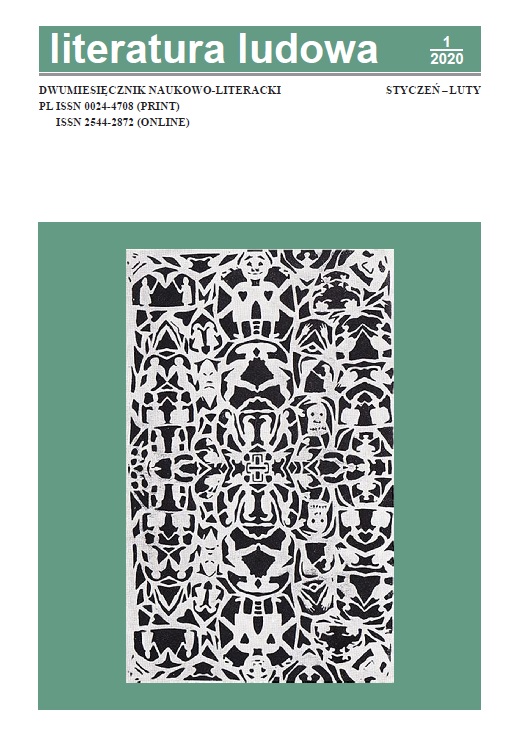The Unearned Mark: The History of the Child Stigma
DOI:
https://doi.org/10.12775/LL.1.2020.003Keywords
HIV/AIDS, hemophilia, taboo, stigma, illness, exclusion, epidemic, fearAbstract
The aim of the article is to shed light on cases of stigma among the youngest victims ofthe AIDS epidemic, a topic that Polish readers may not be familiar with. Since the very
beginning of the AIDS epidemic, hemophiliacs have been classified as belonging to the
so-called highest risk group, next to homosexuals, drug addicts, and prostitutes. In the age
of hysterical anxiety centered around HIV, young hemophiliacs quickly became the subject
of social repression and persecution.
An extremely valuable material that shows the strength of the social stigma, as seen and
experienced from the perspective of a young patient, is Ryan White’s diary documenting his
illness. Ryan’s autobiography illustrates perfectly the development of a negative mythology
concerning the disease and reveals its destructive potential. The portrayal of the young hemophiliac
is a compendium of knowledge about the social mechanisms of stigmatisation,
and in particular of strategies aimed to control fear.
References
Crawford, D. (2015). Virus Hunt. The Search for the Origin of HIV. Oxford: Oxford
University Press.
Forbes, A. (1996). Kids with AIDS. New York: PowerKids Press.
France, D. (2016). How to Survive a Plague. The Inside Story of How Citizens and Science
Tamed AIDS. New York: Knopf.
Goffman, E. (2007). Piętno. Rozważania o zranionej tożsamości (przeł. A. Dzierżyńska,
J. Tokarska-Bakir). Gdańsk: Gdańskie Wydawnictwo Psychologiczne.
Green, D. (2016). Linked by Blood. Hemophilia and AIDS. Chicago-London-Oxford: Academic
Press.
Kübler-Ross, E. (1979). Rozmowy o śmierci i umieraniu (przeł. I. Doleżal-Nowicka).
Warszawa: Instytut Wydawniczy Pax.
Kübler-Ross, E. (1987). AIDS. The Ultimate Challenge. New York: Touchstone Rockefeller
Center.
Schulman, A. (1997). Carmine’s Story. A Book about a Boy Living with AIDS. Minneapolis:
Lerner Pub Group.
Shilts, R. (2007). And the Band Played On. Politics, People, and the AIDS Epidemic.
New York: St. Martin’s Griffin.
Sontag, S. (1999). Choroba jako metafora. AIDS i jego metafory (przeł. J. Anders).
Warszawa: PIW.
Treichler, P. (1999). How to Have Theory in an Epidemic: Cultural Chronicles of AIDS.
Chicago: Duke University Press.
White, R. (1992). My Own Story. New York: Berkley Publisher.
Downloads
Published
How to Cite
Issue
Section
License
1. The authors give the publisher (Polish Ethnological Society) non-exclusive license to use the work in the following fields:a) recording of a Work / subject of a related copyright;
b) reproduction (multiplication) Work / subject of a related copyright in print and digital technique (ebook, audiobook);
c) marketing of units of reproduced Work / subject of a related copyright;
d) introduction of Work / object of related copyright to computer memory;
e) dissemination of the work in an electronic version in the formula of open access under the Creative Commons license (CC BY - ND 3.0).
2. The authors give the publisher the license free of charge.
3. The use of the work by publisher in the above mentioned aspects is not limited in time, quantitatively nor territorially.
Stats
Number of views and downloads: 622
Number of citations: 0



